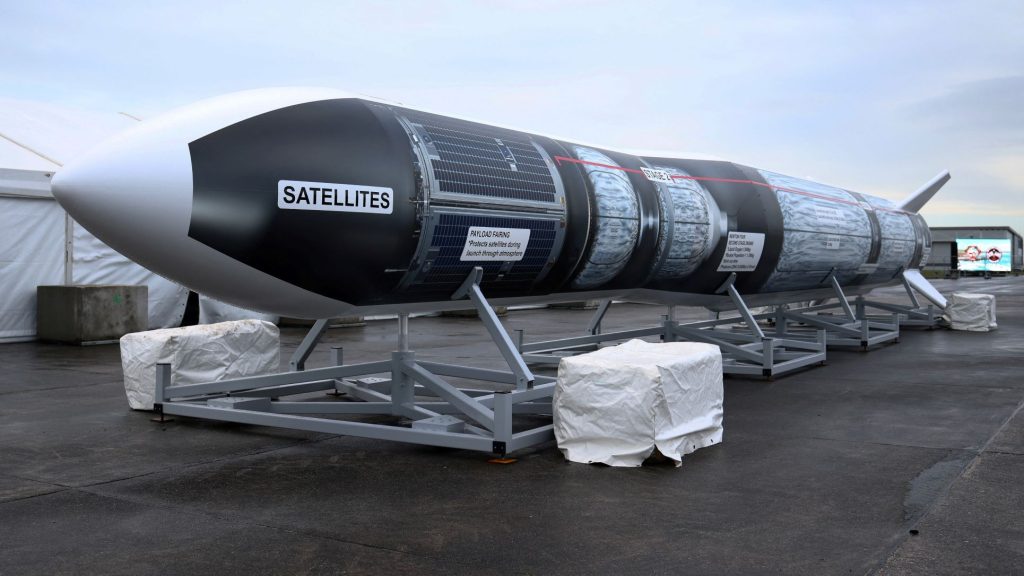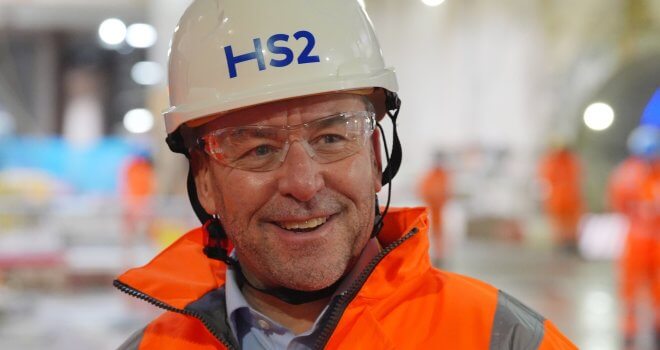English Resort Counts Down To Western Europe’s First Satellite Launch

An English surfing resort was counting down to the first launch of orbital satellites into space from western Europe on Monday, when Virgin Orbit’s mission will transform the Cornish town of Newquay into the country’s first spaceport.
A modified Boeing 747 with a rocket under its wing is set to take off from Newquay on Monday evening, watched by crowds across the runway, before soaring out over the Atlantic where after an hour it will release a rocket at about 35,000 feet.
The “horizontal” launch will catapult the resort in southwest England, population 20,000 and famous for its reliable waves rolling off the Atlantic, into the limelight as western Europe’s go-to destination for small satellites.
Virgin Orbit, part-owned by billionaire Richard Branson, said nine satellites would be deployed into lower Earth orbit (LEO) from its LauncherOne rocket in its first mission outside its United States base.
The new spaceport gives Europe options for launching smaller satellites at a critical time, after the Ukraine war cut access to its use of Russian Soyuz vehicles. The European Space Agency’s (ESA) Ariane 6 rocket, designed to carry large satellites, has also had delays.
The Ukraine war has highlighted the importance for tactical military purposes of smaller satellites, like those being launched from Newquay, which can get into low orbit at much shorter notice than bigger ones.
Virgin Orbit Chief Executive Dan Hart said the satellites – which are the size of breakfast cereal boxes – would fulfil tasks such as maritime research and detecting illegal fishing and piracy, as well as national security.
“We can all personally connect with one or more of the satellites that are flying on this mission,” he told a press conference on Sunday.
Asked what the biggest difference between launching in Cornwall and California was, he joked: “Pasties versus hamburgers, it’s a significant shift.”
He added that partnerships with the likes of the UK Space Agency, Spaceport Cornwall, the British aviation regulator and the country’s air force, had made the launch possible.
SUBJECT TO CHANGE
The aircraft, named Cosmic Girl, is expected to take off at some point between 2140 GMT and 2300 GMT, but it is dependent on the weather and “health of the system” and Virgin Orbit has said there are back-up dates available for later in January.
“Assuming that everything continues to look good we’re currently tracking well for launch,” a Virgin Orbit spokeswoman said on Sunday.
Space enthusiasts with tickets for the launch, which is called “Start Me Up” after the Rolling Stones track, will watch from a viewing area across the runway before attention shifts to a live stream on a big screen.
Virgin Orbit’s focus on LEO satellites is at the other end of the scale from the large satellites in geostationary orbit that are launched by vertical rockets.
The LEO sector is growing rapidly, spurred by satellite broadband companies such as Elon Musk’s Starlink, Amazon and London-headquartered OneWeb.
The smaller satellites are also used for climate change observation, urban development and security purposes, and Britain hopes the new spaceport will boost its space economy.
The country has a large space industry employing 47,000 people, who build more satellites than anywhere outside the United States, but those have had to travel to spaceports in the United States, French Guiana or Kazakhstan before they can make it into orbit.
Getting the mission off the ground has taken time. It was delayed from late last year due to the myriad regulatory clearances needed for the inaugural flight.
(Reporting by Paul Sandle, writing by Sarah Young, editing by Nick Macfie)




